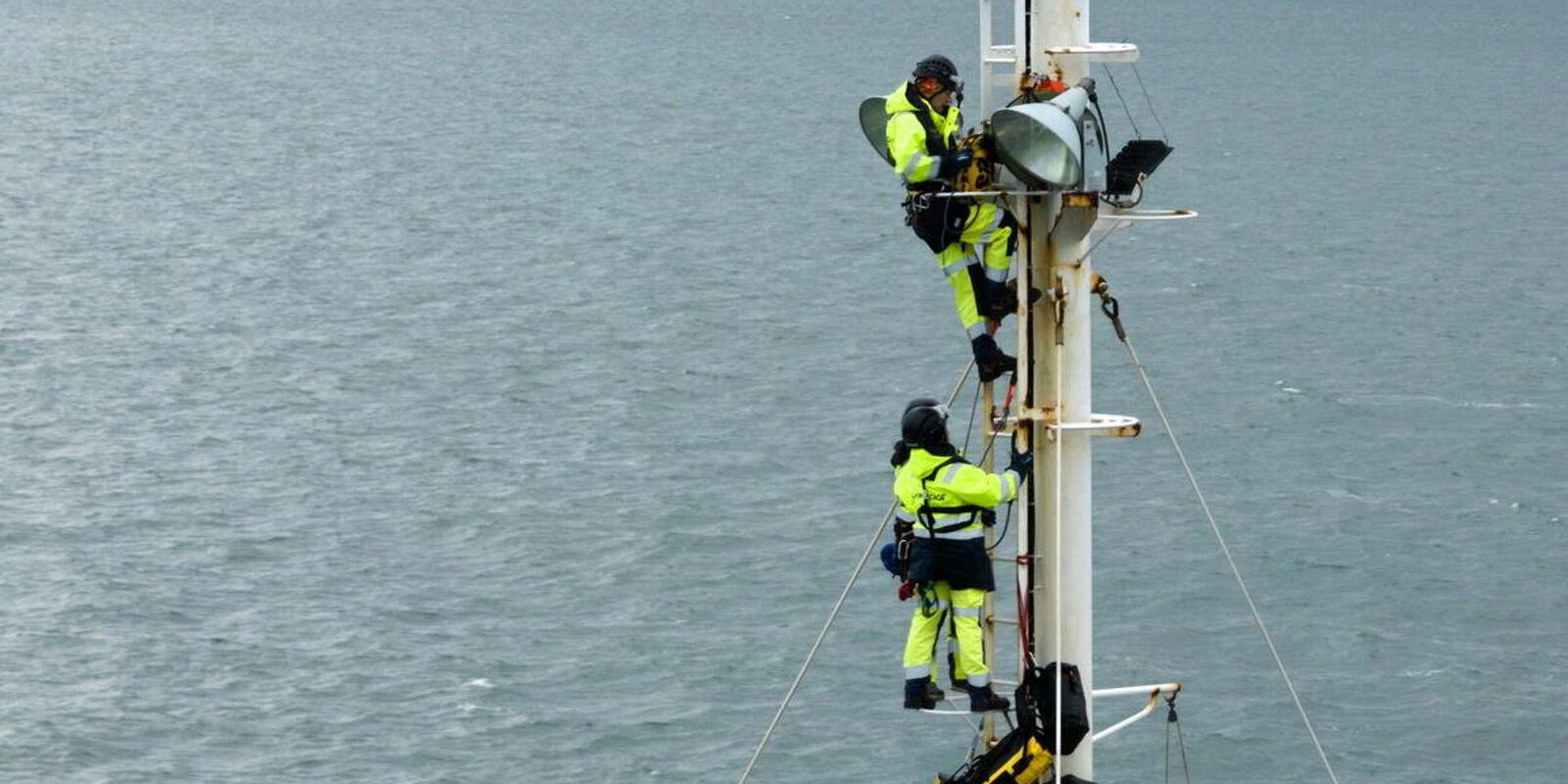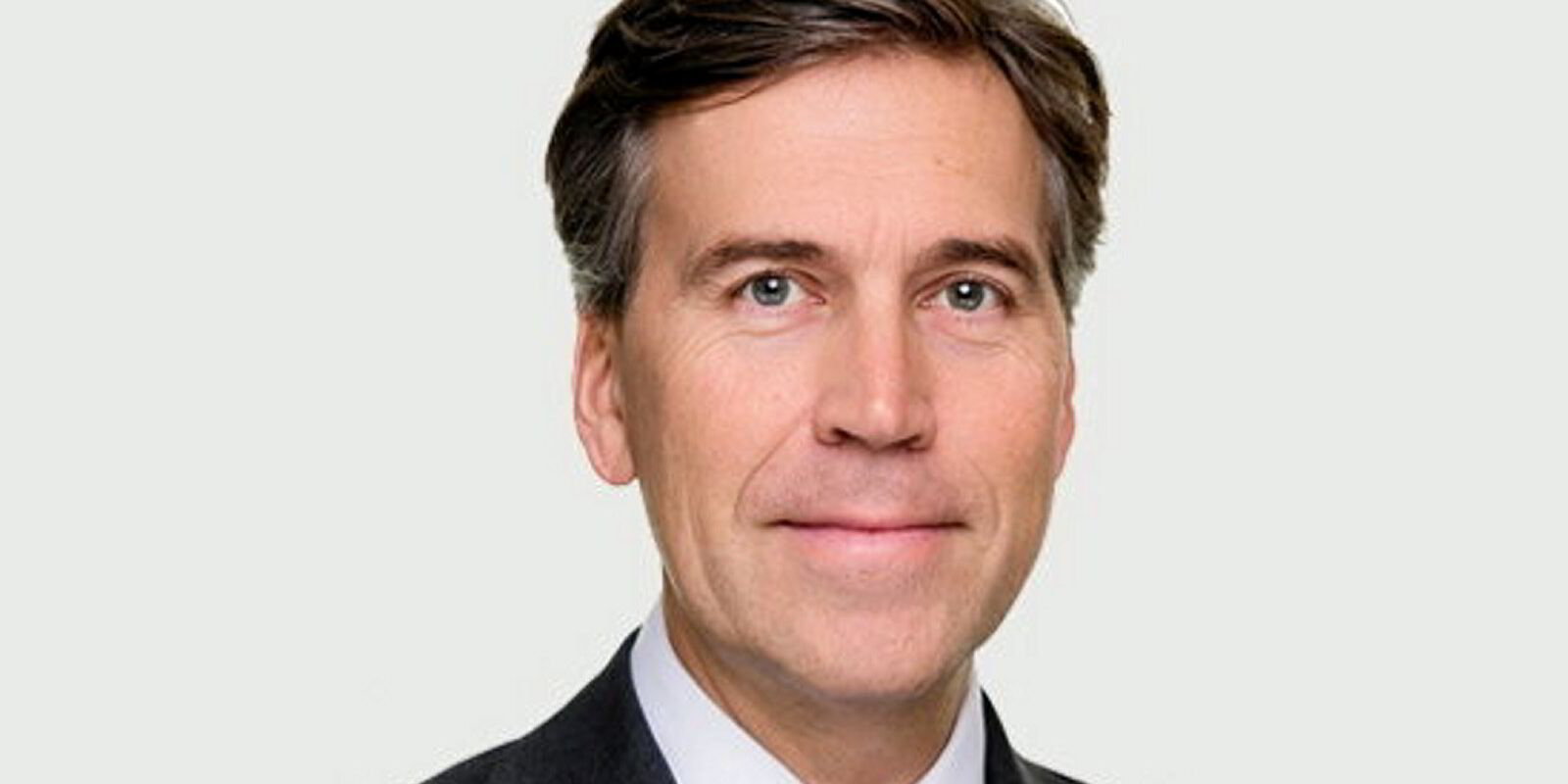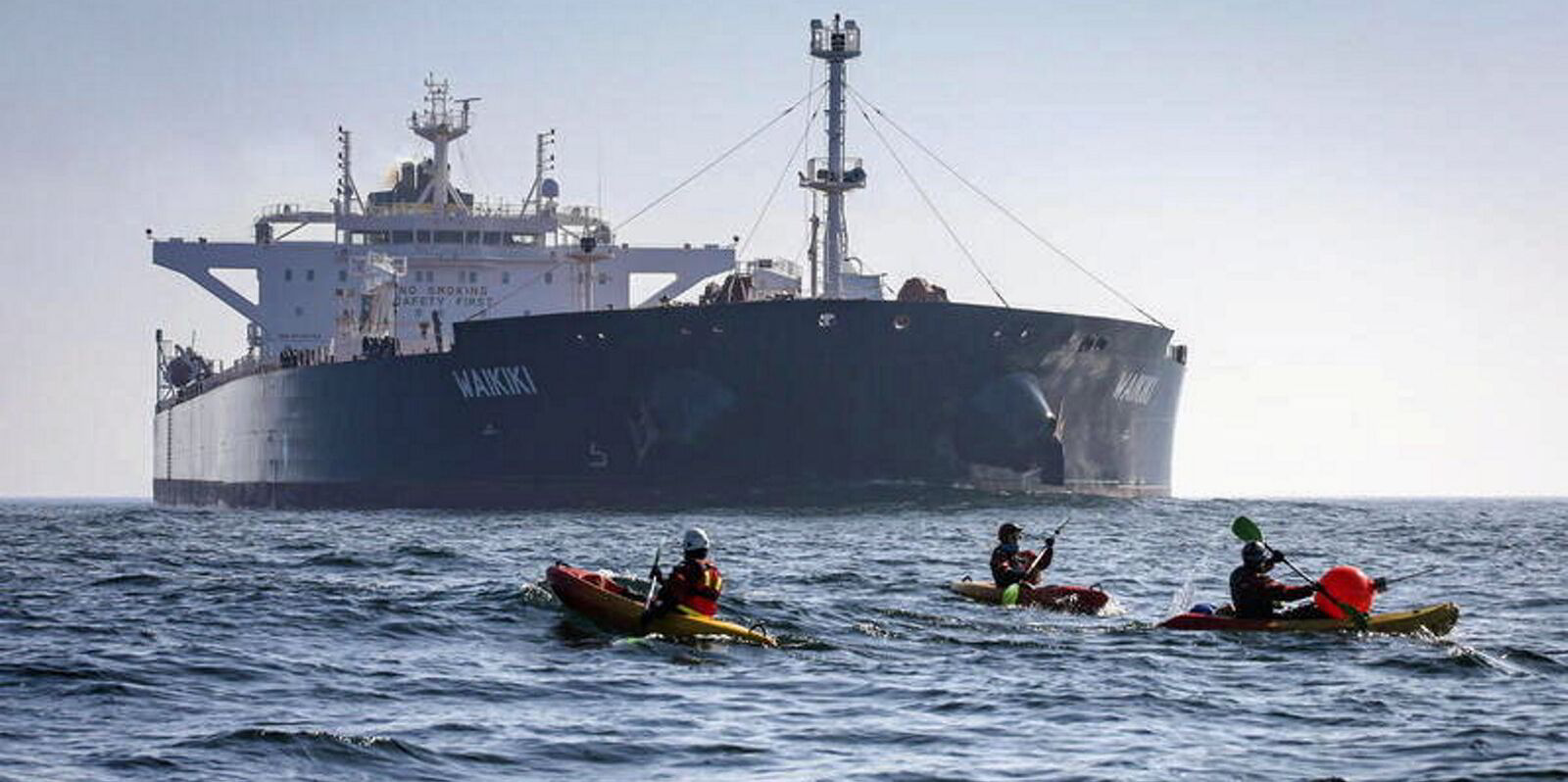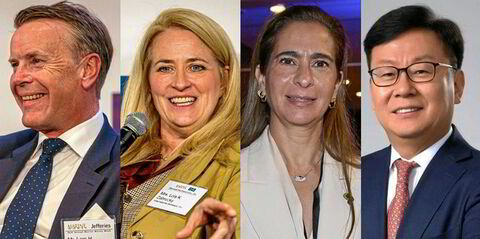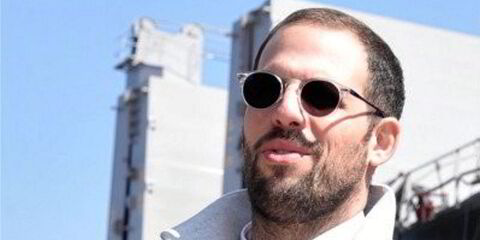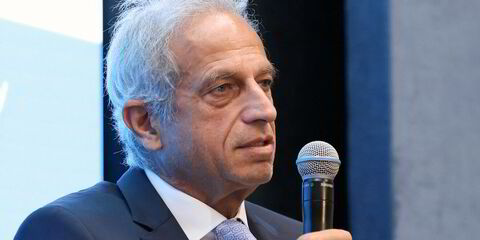Environmental activists boarded an LPG carrier off South Korea to highlight the importance of talks on plastics reduction.
Workers from Greenpeace climbed the mast of the 3,516-cbm Buena Alba (built 2012), which was due to load a cargo from Hyundai Oilbank’s Daesan refinery at the weekend.
The protest took place as negotiations over the United Nations’ Global Plastics Treaty drew to a close in Busan, South Korea.
Greenpeace has been urging governments to resist fossil fuel and petrochemical industry “interference” in discussions to cut plastics production.
Activists from Germany, Mexico and the UK reached the ship, owned by Japan’s Tabuchi Kaiun Kaisha, from inflatable boats launched by the flagship Rainbow Warrior.
They set up climb tents on the mast.
The 96-metre carrier was scheduled to load propylene made from fossil fuels, Greenpeace said.
AIS data shows the ship left the port on Sunday and was heading to China on Monday.
The Center for International Environmental Law said more than 220 petrochemical lobbyists attended the final talks over the weekend.
Alex Wilson, Greenpeace UK climb team volunteer, said: “We are taking direct action here today — stopping this plastic shipment — to urge world leaders to listen to the voices of the millions of people around the world, along with scientists and businesses, who are demanding they cut plastic production to stop plastic pollution.
“As we protest here, petrochemical industry lobbyists are out in force in Busan. They are using their power, money and access to try to ensure that the treaty fails to do what it must — turn off the tap of plastic production.”
Talks end without agreement
Greenpeace says despite growing concerns about plastic’s impacts on health and the environment, production has continued to increase.
Production will consume up to 31% of the remaining carbon budget to limit global warming to 1.5C.
But the UN session ended without an agreement on overall cuts, Reuters reported.
More than 100 nations wanted to cap production, while a handful of oil producers were prepared only to target plastic waste.
They could only agree to postpone key decisions and resume talks.
Inger Andersen, executive director of the UN Environment Programme, said: “It is clear that there is still persisting divergence.”
